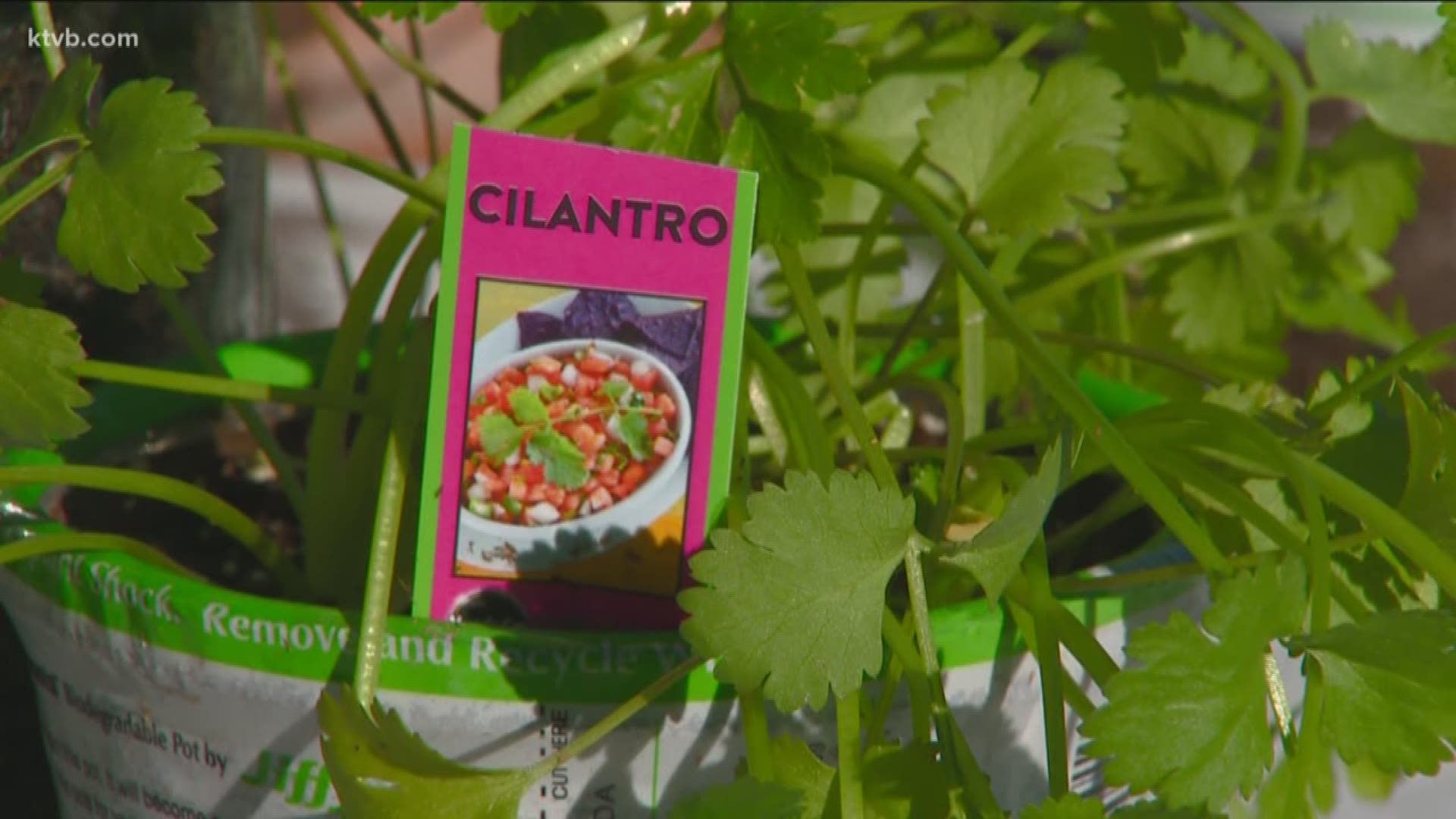Did you know that basil is the most popular herb that people grow in their home gardens? And no wonder! It’s delicious in so many dishes, including tasty pesto sauce, which is the most common use for basil.
But today, garden master Jim Duthie shows us how we can expand our herb garden, with several other kinds of herbs that will be great to have right outside your kitchen door. And, as usual, he says you can grow it.
If you do a lot of cooking, and like to use fresh herbs, then you’ll appreciate a productive herb garden. And herbs are easy to grow, whether they’re in the ground, or in containers.
Even if you don’t use them a lot in cooking, the plants are beautiful, and they smell great. It’s fun to run your hand through the leaves and enjoy the different fragrances.
So let’s take a look at some of the more popular herbs that you definitely want to include in your garden, along with a few not so common varieties of these herbs, just to shake things up a bit.
Almost all of these herbs are perennials, which means that they’ll come back year after year. Put them in a mostly sunny spot, with some well-drained soil, and they should do just fine.
A couple of exceptions are annuals, which have to be replanted each spring, like cilantro and parsley. These two herbs are related, and they look a lot alike, but they have very different flavors. Cilantro has a stronger, spicier flavor. The leaf of the plant is called cilantro, and its seeds are called coriander. Both are used in different kinds of cooking. Cilantro is very popular in Mexican dishes, especially salsas.
Parsley has a milder flavor and is used more as a garnish. Parsley is a biennial, which means that it does well for two seasons, and then it becomes less productive and should be replanted. It comes in the common leafy variety, or this curled leaf kind.
Among the perennials, oregano comes in dozens of varieties, and each one has a distinctive fragrance and flavor. It doesn’t mind even poor soil, as long as there’s good drainage. Italian oregano is most common, with a classic Mediterranean flavor, but for a twist, try this hot and spicy variety for a little extra zip.
Rosemary is another classic herb and is considered an evergreen plant. It prefers hotter, drier conditions. Use the sprigs, or sprinkle the needles in cooking, or dry them and crush them up with other herbs.
Sage also likes a lot of sun, but it tolerates a little bit of shade. For cooking, use the fresh leaves and rub them into meat, or crush the dry leaves into egg and vegetable dishes.
This is the common garden sage, but for something a little different, try this pineapple sage, with an unexpected scent of the tropics.
It also produces beautiful red flowers that attracts hummingbirds and butterflies.
Thyme is another evergreen plant that comes back year after year. It also likes the heat, and it will attract bees to the garden. Dried thyme leaves add a savory touch to meat, poultry, fish and vegetables, and made into a tea, it’s supposed to remedy against colds, coughs and sore throats. The classic Greek thyme is most popular, but you’ll love the citrusy scent of this lemon thyme.
Finally, there are many varieties of mint, including popular peppermint and spearmint, and even some that have an orange or lemon scent. But if you love chocolate, you’ll flip over this chocolate mint. It’ll really make your mouth water.
Mint is a very hardy plant, and it can become invasive and spread quickly throughout the garden. The best way to keep it under control is to grow it in a container. But you’ll be glad you included it in your herb garden.
Use fresh herb leaves during the growing season. Frequent picking of the top leaves encourages more growth and bushier plants.
With most herbs, they tend to lose their flavor once they start to blossom, so it’s a good idea to pick the flowers off, at least until later in the season.
Whether you call them herbs, or herbs, these plants are a tasty and fun addition to any garden.
If you don’t have room for a big herb garden, herbs grow very well in containers on your patio or deck. You can even grow them in small pots indoors on a sunny windowsill.
Watch more 'You Can Grow It':
See them all on our YouTube playlist here:

